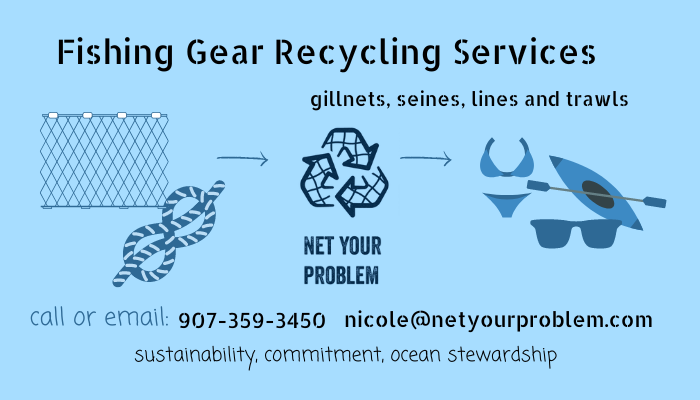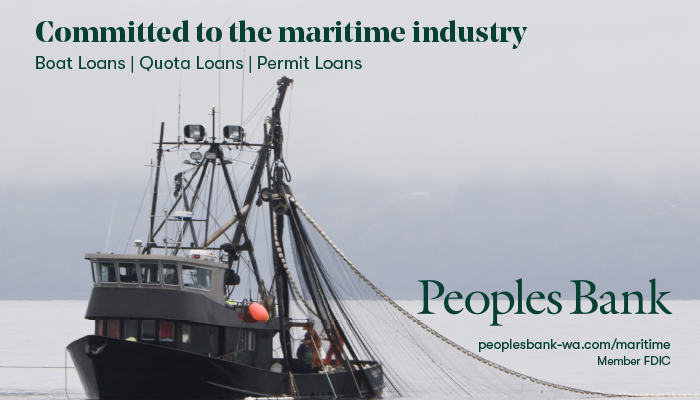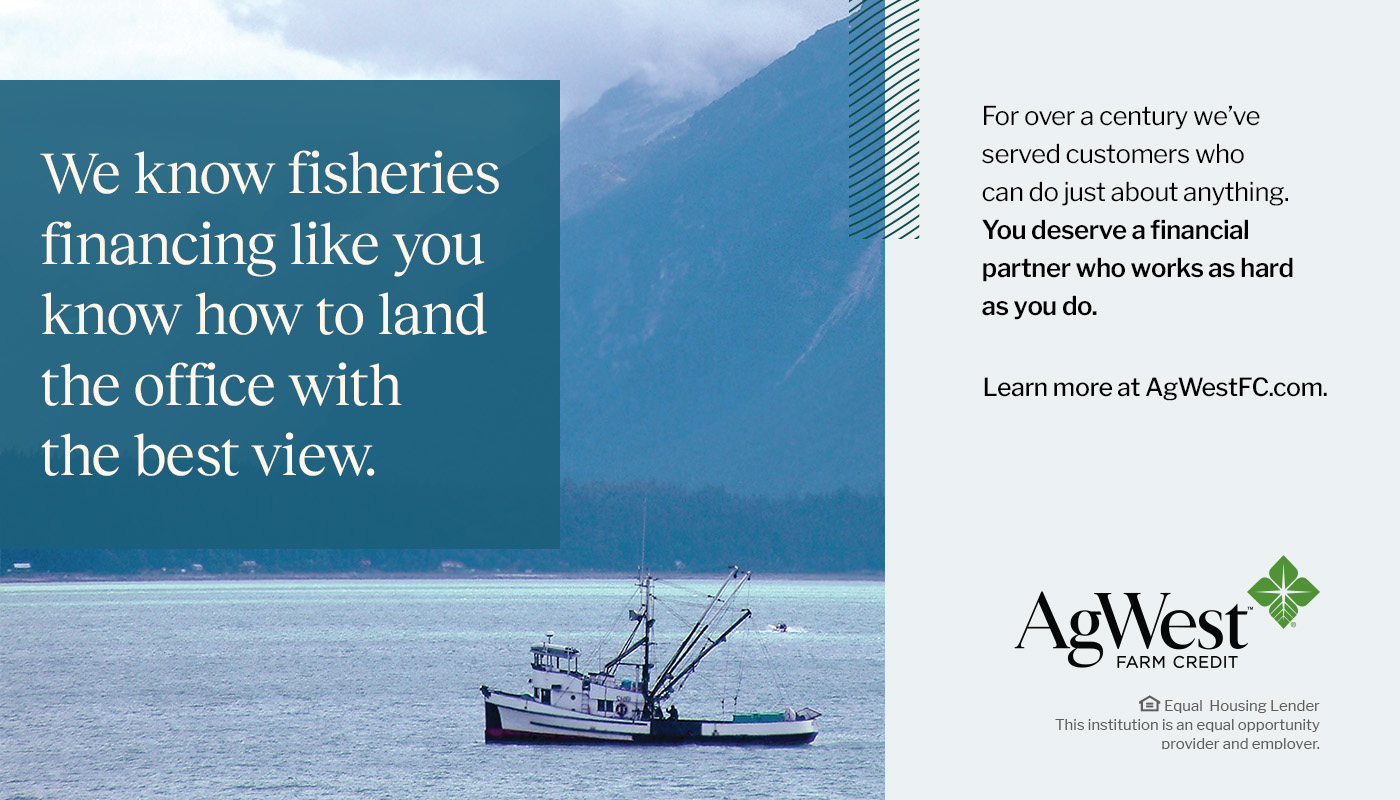The Fish Ticket
July 7, 2024
Permits & State Fisheries
The salmon season is truly underway, but there's still quite a bit of uncertainty amongst the fleet. There's some optimism and some pessimism, but the season seems marked most by uncertainty and a culture of just pushing forward. Read Nat Hertz' write up, including an interview with yours truly, here.
In permit news: PWS drift permits are garnering more attention, with recent sales at $76,000 and current offers as high as $70,000. PWS seine permits are at $140,000. Cook Inlet drift permits are still hanging out at $25,000 and setnet permits are at $15,000. Southeast drift permits are moving in the low $40,000 range, with a recent sale at $42,000 and listings as low as $46,000; leases are at $6,000. Bristol Bay permits have slowed down, leasing most recently for $14,000; our highest offer to purchase is $140,000 cash, and our lowest asking price is $175,000.
ASMI has begun publishing their weekly salmon harvest updates! The first update covered harvests through June 22 and the second update covers numbers through the 29th.
IFQs & Federal Fisheries
With salmon season underway, the quota market is pretty quiet (as if it weren't quiet before salmon kicked off...). A sale in late May at $27.50 marked the lowest price we’ve seen for 3A unblocked this year. Most fishermen aren’t thinking about buying or selling quota during the salmon season, but we did sell a block of 3A at $24.00 a couple of weeks ago.
In Homer, halibut dock prices were strong ahead of 4th of July weekend, with one buyer paying $6.50 straight last Monday. Prices around the state were somewhat lower; Juneau was at $5.00/$5.50/$6.00 on June 29 and Cordova at $5.20/$5.70/$5.80 on June 30. Not much change in black cod ex-vessel prices, they're still awful. On June 18 Seward was paying: <2 $0.40, 2-3 $1.25, 3-4 $1.65, 4-5 $2.30, 5-7 $3.70, 7 ups $6.40. (If you find this market information useful, and you’re making a delivery, please let us know what you got paid!)
The NPFMC met last month in Kodiak, here's a recap of the June meeting. Of note to halibut IFQ holders: the Council moved to final review a motion to adjust halibut vessel caps in Area 4, either by creating a new limit of 4%, 5% or 6% of the Area 4 halibut TAC, OR excluding Area 4A from the new vessel cap under consideration and establish an Area 4B/4C/4D/4E vessel cap of 7%, 9%, or 11% (they haven't picked a favorite yet). In the sablefish world, the Council selected a preliminary preferred alternative on small sablefish release which would allow voluntary release of fish under 22"; Council staff will prepare an updated analysis and the issue will be up for final action at a future meeting. The Council also requested from staff a discussion paper regarding the specifics of a BSAI pot cod Limited Access Privilege Program (LAPP).
In 2023, about half of the vessels in Alaska's federal fisheries were subject to observer coverage, and 44% of trips were covered, according to a report presented at last month's NPFMC meeting in Kodiak.
What Else?
Our hearts are with the friends and family of Bristol Bay fisherman Corwin Wheeler following his tragic passing on Friday. According to the Troopers, Wheeler was swept up in the net and pulled overboard. I haven't seen a GoFundMe yet, If you're aware of one, or of a different way to support his family, please send it to me so I can share it.
The state legislature last month passed a bill amending the commercial fisheries loan program, reducing the interest rate from the current 10.5% to 5.25% (fixed for the life of the loan) and increasing the maximum loan amount for both purchases and refinances from $200,000 to $400,000. If you have an existing loan with a high interest rate, you may request an interest rate reduction (also fixed for the remainder of the loan). These changes become effective as soon as Dunleavy signs the bill and will remain in effect through June 2027. More info here.
The fishing industry is encouraged by the framework for the next farm bill recently put forward by Republicans on the Senate Ag Committee. The framework suggests the next farm bill would establish a "seafood liaison" at the USDA to better coordinate seafood policies, and would allow fishing businesses the same access to the Farm Credit System. Of course, there's a long way to go until Congress actually passes a farm bill. Click here for more on how the next farm bill could help fishermen.
On Friday, the US Supreme Court struck down a 40-year-old decision requiring courts to defer to agencies when federal regulations are vague, a precedent known as the Chevron Deference. This new decision was instigated by East Coast herring fishermen over observer fees and will affect not only federal fisheries across the country, but likely every other industry subject to federal regulation. I guess you could say it's kind of a big deal.
After a long "will they or won't they" period of limbo, Silver Bay Seafoods announced their purchase of Trident Seafoods' False Pass processing plant and fuel business earlier this month.
On a related note, Trident announced in June that they would buy pollock through the B season while navigating the sale of the plant.
Northline Seafoods' 400 ft processing barge, the Hannah, suffered an electrical fire last Sunday, which has diminished their processing capacity for the near future. They will continue to support their fleet and buy as much as they can, but are suggesting vessels look for other markets and may consider limits for those who stay. Truly unfortunate.
The State's request for an extension of the comment period on the petition to put GOA Chinook on the Endangered Species list was granted. The new comment deadline is September 6. Find more information here, and click here to submit a comment.
Interestingly, appoints to the North Pacific Fisheries Management Council (NPFMC) were expected Friday. Instead, the Secretary of Commerce announced appoints to all Councils except the Pacific and North Pacific, stating that they will be announced later this summer. Hmmm.
NOAA is looking for input on Ecosystem-Based Fisheries Management (EBFM), which "recognizes the physical, biological, economic, and social interactions among the affected fishery-related components of the ecosystem, including humans" - looking at the larger picture, rather than viewing each stock as an isolated entity. If you have thoughts to share, send comments to [email protected]
Sockeye deliveries at Copper River have far surpassed expectations, but retail prices have dropped considerably. However, Copper River sockeye row prices in Japan are at their highest level in four years.
Remember Mike Porcaro, the talk-show-host-turned-
In the ongoing Peter Pan Seafoods saga, Roger May accused Silver Bay Seafoods of using private company information to ensure favorable terms for SBS' purchase of Peter Pan assets (SBS denies this). Amidst this, Peter Pan is facing a $750,000 Clean Water Act fine, in addition to multiple industry liens. Meanwhile, May, who is bidding against Silver Bay for some of Peter Pan's assets, argued that Peter Pan's receiver was selling inventory and assets too hastily, favoring Wells Fargo at the expense of smaller creditors (like May himself), and requested more time for the sale of assets. OBI Seafoods chimed in on May's side and a Washington court agreed, amending the receivership order. Never a dull moment, eh?
In economic disaster news: the Feds have declared a disaster for the 2023 Cook Inlet east side set net fishery (for the third year in a row and the fifth time in six years) and the 2022 Chignik salmon fishery (the fourth in five years). Stakeholders in the NSRKC and Bering Sea Tanner crab fisheries can now apply for disaster relief from the 2019 and 2020 seasons, for which roughly $14.4 million is available. (Although, given recent trends, they probably won't actually see any money until 2028? 2029? East side setnetters, for example, are still waiting on relief funds from the 2018 and 2020 seasons.)
The CEOs of Silver Bay, Trident, and OBI are optimistic the 2024 season will bring stability and increased profits, while still acknowledging some serious struggles within the industry. ASMI's Jeremy Woodrow is also optimistic about the season ahead.
The NPFMC announced its top 12 research priorities though 2028, which include salmon bycatch, affects of fishing gear on crab, socioeconomic and cultural impacts of fisheries and management, improving discard mortality rate estimates, and more.
NMFS is switching up its survey game, ostensibly to modernize and increase efficiency (but also maybe because they're broke? Dunno). They'll be consolidating three Bering Sea surveys into one, skipping the Alaska longline survey this year, moving away from the grid system and reducing survey days. Although this should be offset by technological advances and increased efficiency in the future, they suggest the NPFMC may want to manage stocks more conservatively in the short-term.
Two fishing vessels in Southeast overturned in as many weeks. The Pamela Rae, a 58' seiner out of Petersburg, overturned near Wrangell after taking on water, and the Mangy Otter, a 22' crab boat out of Petersburg, sank near Duncan Canal. In best-case-scenarios for both, everybody survived and only minor injuries were reported.
In a first of its kind, an Alaska fisherman has pled guilty to federal charges for ordering his crew to shoot a sperm whale, and, separately, for falsifying sablefish landing records.
Here's an update on the Wild Fish Conservancy lawsuit (the one that almost shut down Southeast's troll fishery last summer). Currently, ADFG anticipates the season will open as usual, and the Ninth Circuit has a hearing scheduled for July 18th.
On this week's Alaska Fisheries Report: Southeast salmon, Kasilof River dip netting, and an audio postcard from Bristol Bay. Catch up on older episodes here.
Make sure to get caught up on Bering Sea Barometer episodes: pollock B season, salmon and halibut prices, deckhand shortages, and updates on fisheries across the state. I genuinely love listening to this podcast, I always learn something new and something about Pete's dry delivery just cracks me up sometimes. Give it a listen!
The Biden Administration has awarded $20 million in funding for the eight regional fishery management councils.
Putin has declared that Russia may unilaterally set TACs in waters beyond its own EEZ which are regulated by international treaty but where no agreement exists concerning quota. That's... bold.
Russia is forecasting a salmon harvest of about 320,000 tons, just over half of last year's total harvest.
Trident was awarded a USDA contract for $1.38 million worth of pollock products.
Have you seen Bay Weld Boats' new limit seiner? It's a 1500-hp twin jet that draws 2' (empty), and packs 140,000 pounds...
NOAA will review the endangered species petition for Chinook salmon brought forth by the Wild Fish Conservancy (the same outfit that sued to shut down Southeast trollers last year). In a press release, the agency noted that "information present in the petition contained numerous factual errors, omissions, incomplete references, and unsupported assertions and conclusions,” so, that's great. Comments are open through July 23 - click here.
Iliamna Natives Ltd. and the Alaskan Peninsula Corporation, two Alaska Native village corporations, have sued the EPA over their veto of Pebble Mine.
Despite increased sanction pressure, Russia plans to modernize its fisheries infrastructure and increase processing capacity by nearly 80% in the next five years. Not great. But also, will that really happen? Who knows. It's Russia.
Japan's 2023 imports of US sockeye were up 41% from 2022. Huh - wonder if that had anything to do with the fire sale prices at which processors offloaded 2022 fish last spring...
Turns out, Alaskans eat a lot of fish. Like, a lot, a lot. As in 30-60 times the national average. Because of this, The EPA is requiring the state to come up with a new plan for pollutants in state waters, pointing out that consuming more fish = consuming more pollutants and current regs were developed using a 30-year-old national average rate that just doesn't work for Alaska.
Meanwhile, processors in Alaska are running out of room to dump fish waste. As an alternative, they're opting to apply for permits allowing offshore disposal of waste and using "gut boats" or "gurry boats" to ferry the waste from the shore to designated dumping sites. While this does seem to address a nearshore problem, it comes with its own set of issues. In fact, shoreside processors discard nearly 3 billion pounds of waste annually, as only about 46% of the product coming through their plants actually gets used. But wait, there's good news! To address this, ASMI has been awarded a $1 million NOAA grant to develop products like pet food, and new markets for underutilized parts like heads and innards.
Egegik has a new Net Your Problem net recycling drop site (adding to Bristol Bay's existing drop sites in Dillingham and Naknek) and in Homer, the company collected nets though mid June and will collect again in the fall. Did you know they also take PVC rain gear?
Alaska is short on deckhands. It seems we're hearing more and more often that skippers are having a hard time finding crew, and a recent Kodiak Daily Mirror article articulated it pretty clearly.






